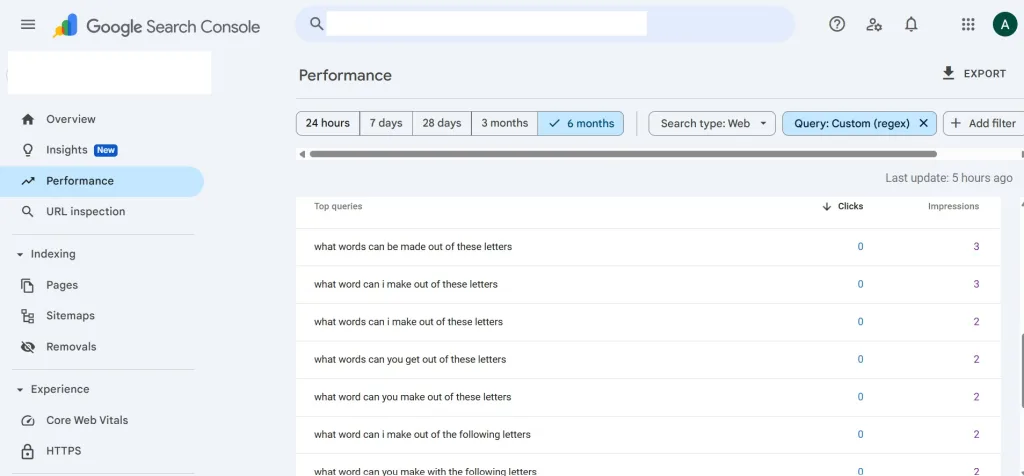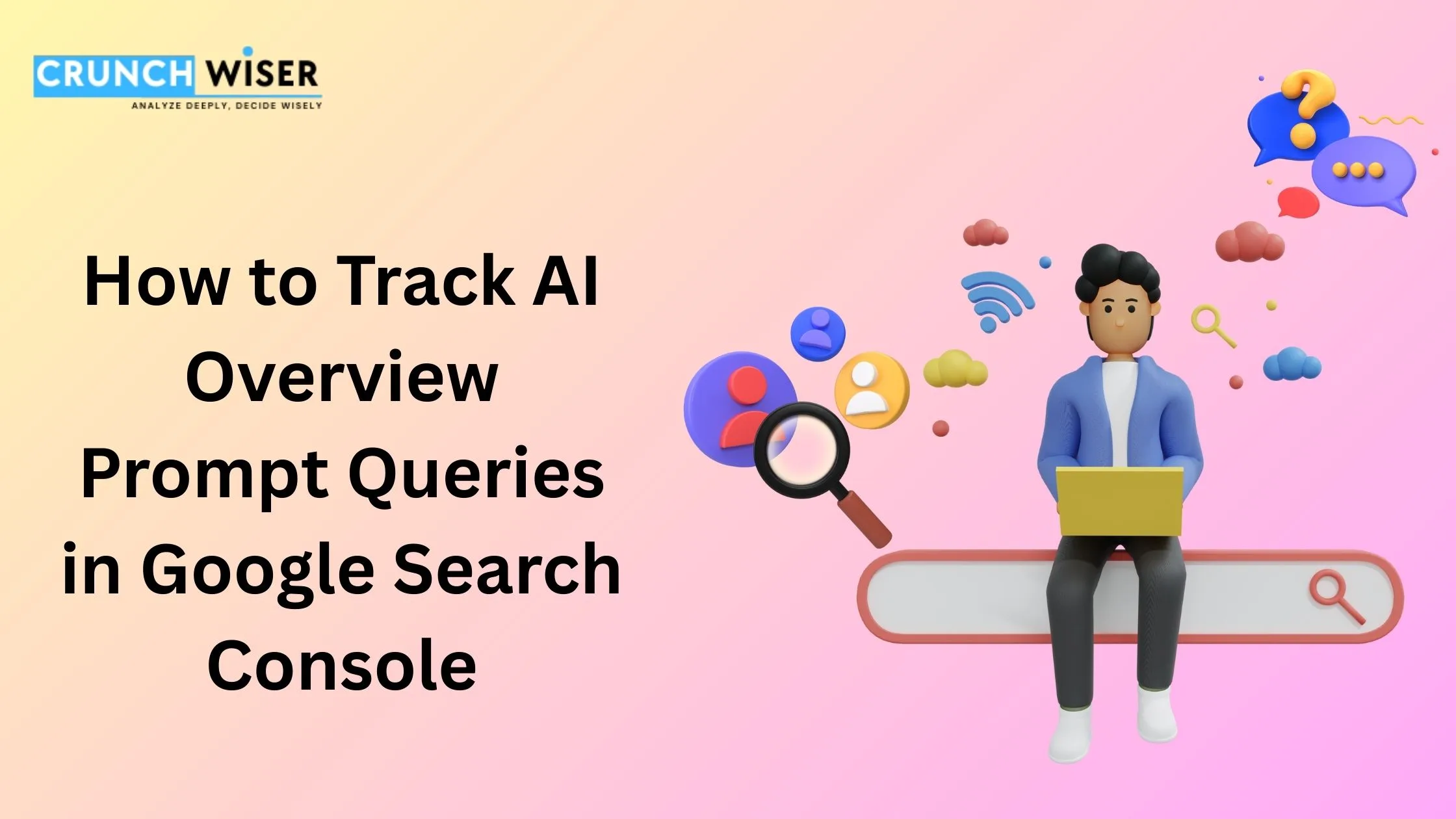If you work in SEO or digital content, you’re likely grappling with the same challenge: adapting to a search landscape increasingly dominated by AI. Features like Google’s AI Overviews/AI Mode can feel like a black box, leaving teams to guess which content will be selected, which queries will trigger an AI response, and how to adjust their strategy for a world with fewer clicks.
But what if there was a clear, data-driven playbook for this new reality? We’ve analyzed an internal, step-by-step guide designed to do just that. It reveals a surprisingly straightforward method for identifying and acting on the queries most likely to be answered by AI. Here are the four most impactful takeaways from that process.
1. You Can Find AI-Targeted Queries with Tools You Already Use
The most surprising revelation from the playbook is that the entire discovery process hinges on a tool every SEO already has: Google Search Console (GSC). There is no mention of expensive, specialized AI optimization software. The strategy is built entirely on a clever, technical application of existing tools.
The method combines two distinct regex (regular expression) filters to isolate potential AI targets directly from your performance data.
The first filter identifies question-based queries by looking for stems like how, what, why, ways to, tips for, or guide to.
Question-style queries (regex):
^(who|what|where|when|why|how|was|did|do|is|are|aren't|won't|does|if)\bThis would give you all the queries that your target audience is searching on Google. But it’ll contain 2-3 keywords as well. But here, we want to filter out real question type queries that people often ask on gemini or Google AI mode.
To filter out those keywords, we’ll use a second regex. This regex identifies long queries using a word count threshold.
([^\"\s]*\s){8,}By combining them, you get a single, powerful filter that finds queries that are both conversational and complex. This is the exact pattern the playbook uses to surface high-potential queries:
^(who|what|where|when|why|how|was|did|do|is|are|aren't|won't|does|if)\b.*([^"\s]*\s){8,}This makes the process of adapting to AI search accessible to any team, regardless of budget. It democratizes the strategy by providing the exact technical tool needed to turn your own GSC data into an actionable roadmap.

2. The ‘Signature’ of an AI Query is Simpler Than You Think
While the inner workings of AI models are complex, the playbook proposes a simple heuristic for identifying the queries most likely to trigger an AI-generated answer. It argues that these queries share two specific, easily identifiable traits.
- They are question-based, starting with inquisitive words like “how,” “what,” “why,” or action-oriented phrases like “best way to,” “steps to,” and “get rid of.”
- They are long, using a word count threshold of 8, 10, or 12 words as an operational proxy for the complex prompts that users submit to LLMs.
The playbook defines any query that meets both criteria as an “AI Overview candidate.” This simple signature is powerful because it creates a quantifiable and targetable segment of queries for the first time. It transforms the vague, abstract problem of “optimizing for AI” into a specific, measurable dataset you can build a strategy around.
3. Winning in AI Search Means Looking Beyond Your Own Website
Once a list of “AI candidate” queries is identified, the playbook mandates a manual testing phase. Teams are instructed to run these queries through tools like Perplexity, ChatGPT, and Google Search to see which domains are cited as sources in the AI-generated answers.
A key finding from this process is that AI models frequently cite community forums like Reddit, StackOverflow, and Quora as authoritative sources. When this happens, the playbook prescribes a specific action that represents a significant shift from traditional on-page SEO.
If a community resource (Reddit, StackOverflow, Quora) is cited: contribute a high quality answer and include our content as helpful context. Follow community rules.
This strategy moves optimization beyond the boundaries of a company’s own domain. It reframes the work as participating in a broader information ecosystem, where contributing value to existing conversations on third-party platforms is just as important as publishing a new blog post.
4. The Playbook Demands a Repeatable, Measurable Action Plan
This playbook isn’t just a method for finding queries; it’s a complete operational framework for taking action. It outlines a structured, weekly operational loop that transforms analysis into a set of repeatable tasks with clear ownership and success metrics.
The process isn’t a one-off project but a continuous, results-driven business process:
- Identify & Prioritize: Each week, the team uses the GSC regex filters to find “AI candidate” queries. These are then systematically prioritized for action. “High priority” candidates are defined as those with high impression volume (top 20%) and low click-through rates, focusing effort on the biggest opportunities first.
- Test & Analyze: The highest-priority queries are manually checked in AI tools to see which domains are being cited and what kind of content is being surfaced.
- Execute & Optimize: Based on the analysis, the team takes specific actions. This could mean updating an existing page with a clearer answer, creating a new targeted FAQ, or contributing a helpful reply to a community thread on Reddit or Quora.
Crucially, the entire loop is measured against clear KPIs, such as “% of tested queries where our domain appears in source lists” and a target to “Reduce unaddressed high-impression ai_candidate queries by 50% in 90 days.” This transforms AI optimization from a reactive guessing game into a proactive, measurable strategy.
Conclusion: From Finding to Answering
Ultimately, the playbook demystifies the challenge of optimizing for AI search. It reveals that the core of the strategy is a methodical process of identifying specific user intent, represented by long, question-based queries, and providing clear, structured, and authoritative value wherever that user is looking for it. That might be on your website, but it could just as easily be in a forum discussion or a Q&A thread.
The playbook gives us a map to find where AI is looking for answers. The critical question for all of us now is: what is the most helpful and authoritative answer we can provide when it looks our way?




